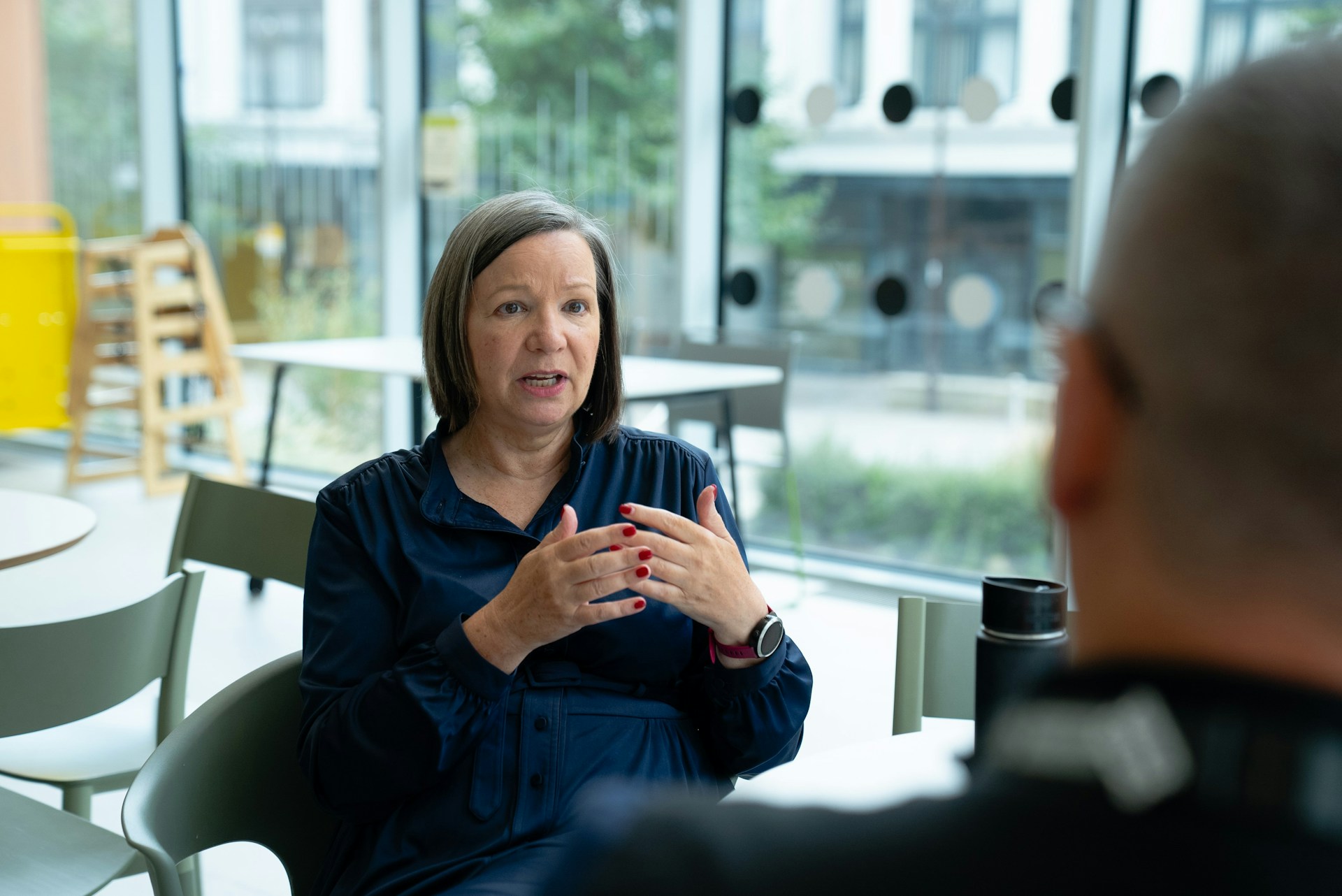5 Things Every Startup Founder Should Know To Avoid Going Bankrupt

“We made 500 of each (Obama O's and Cap'n McCains). They were a numbered edition on the top of each box and sold for $40 each. The Obama O's sold out, netting the funds we needed to keep Airbnb alive. The Cap'n McCains… they didn't sell quite as well, and we ended up eating them to save money on food.”
Joe Gebbia (Co-founder of Airbnb)
Bankruptcy, that’s a word every entrepreneur dreads because it often signals the end of a dream. When a business or individual goes bankrupt, it means they are unable to pay off debts and handle other financial obligations, so they file for bankruptcy. After filing for bankruptcy, the individual or company’s assets are sold off and used to pay off part or all of the debts. This is a legal process that’s often handled by the court.
Established companies rarely go bankrupt but the same can not be said of Startups. So what makes Startups so vulnerable to bankruptcy? Unlike companies that are already profitable, most startups are yet to break even, meaning they don’t generate enough money to be self-sufficient. To keep the business running, the founder needs to continue injecting money into the business and most of it comes from personal finances. But this can’t go on forever, eventually, the business has to start making some money or the founder goes bankrupt. In this case, it’s not the company that goes bankrupt but the founder, and when this happens, the company folds up as well. This is why every Startup founder must be financially savvy and here are 5 things you should know.
Be Creative
The quote at the beginning of this article is a snippet of a story that is as inspiring as it is interesting. It is the story of how the founders of Airbnb raised seed capital during the 2008 Democratic National Convention in Denver by selling boxes of cheerios. They made about $25,000 by selling two different boxes of Cheerios, Obama O's, and Cap'n McCains.
After selling off the Obama O’s they still had some boxes of the Cap'n McCains left and what did they do with it? They ate them. You all know the rest of the story, the company is one of the most successful startups of its time valued at 113 billion US dollars as of 2021.
The founders of Airbnb demonstrated two skills that guaranteed their success in the end. They showed creativity by looking for other ways of raising money to sustain their business without going into debt. Most founders develop tunnel vision and become so focused on growing their business that they fail to think outside the box. Instead, they keep borrowing from their credit cards and in a short time, they have managed to amass a huge debt. This affects their personal life and business as well.
Your business has time and can always recover, but when you run into so much debt that you can hardly take care of your daily needs, you end up risking more than just your business. In essence, you have to come up with creative ways of raising capital other than dipping your hands into your credit card or relying solely on your savings because these are not sustainable.
Every penny counts

(Photo by micheile dot com on Unsplash)
Apart from their creativity, the founders of Airbnb also showed remarkable self-control by living below their means (eating the remaining boxes of Cheerios). This helped them to save more and have enough money to sustain their Startup. The more you have in savings, the more you can sustain the business and the greater your chances of success. If you are not frugal, you can run into money problems on a personal and business level.
So many business owners have had to close up shop because they mismanaged their finances. At this point, it should be clear that Capital is the lifeblood of any Startup. You may have a one-in-a-million business idea but if you don’t have a one-in-a-million money management habit then it’s just a matter of time before you join the host of other founders who had great ideas but poor financial skills. We are trying to say that you must learn to cut your expenses as much as possible and here are some suggestions that might help you.
Use free products
Except when necessary, you don’t always have to opt-in for the premium versions of products like office software. A subscription would come with more benefits but if the free version serves you well, then consider skipping the monthly subscription. And since we are talking about free products, one way to cut expenses is by not being in a hurry to acquire an office.
It’s a huge investment and yes, having a company office sounds better than being in a garage or converting your house into a small office. But then, it also means spending a huge chunk of your capital that should have gone into product development. Other options are available if you want an office space but do not have the financial resources to acquire one.
Shared resources

(Photo by myHQ Workspaces on Unsplash)
One of the best ways a new firm can save some money is by sharing resources. Coworking spaces became popular for a reason, and that’s because they provide a comfortable environment where your employees can work and have access to necessary office resources at a low cost. Coworking spaces are best for Startups that want to expand their team and need a space where everyone can work comfortably. Coworking spaces aren’t free but are a lot cheaper.
Find a Venture Builder
Venture builders are more than just investors, they are a lifeline that Startups should have. The reason is that Venture builders do not just provide Startups with seed capital and watch them squander it. They also assist in the form of shared resources like coworking spaces and skills like financial management, communication, and marketing strategies.
Venture builders are the complete package, and having a venture builder on your side could be the difference between having thousands of dollars in debt or having thousands of dollars in savings. Read this article to know what a Venture builder is and if you have any questions, contact Epirus Ventures via our website. Epirus Ventures is a venture builder, and we have one purpose which is to “Empower Entrepreneurship.”
FAQs: 5 Things Every Startup Founder Should Know To Avoid Going Bankrupt
Startups are often more vulnerable to bankruptcy because they have yet to achieve consistent profitability. Unlike established companies generating steady revenue streams, startups rely heavily on external funding and personal finances to survive. This reliance, combined with high operational costs, can quickly lead to debt accumulation if the business fails to perform as planned.
Founders can avoid excessive reliance on personal finances by being resourceful and thinking outside the box. For example, Airbnb's founders raised seed money by selling custom cereal boxes. Additionally, founders should explore funding alternatives like venture builders, crowdfunding, or securing angel investments. Developing a sustainable budget and tracking all expenses can also prevent excessive use of personal assets.
Creative funding strategies include selling unique or customized products (like Airbnb's cereal boxes), launching crowdfunding campaigns, seeking partnerships or sponsorships, or offering pre-orders for future products or services. Startups can also leverage low-cost resources like coworking spaces or explore grants and competitions.
Frugality ensures that founders can stretch their limited resources as far as possible while focusing on building their business. Keeping expenses minimal allows startups to survive longer without needing additional funding. For example, founders can save money by working from home, using free software tools, or adopting affordable coworking spaces instead of renting an office.
Venture builders are organizations that provide startups with more than just funding—they offer shared resources, mentorship, and strategic guidance. Unlike traditional investors, venture builders actively participate in a startup's growth by providing operational support, coworking spaces, and expertise in areas like marketing, management, and financial planning.
Facing financial difficulties, the Airbnb founders, Joe Gebbia and Brian Chesky, created cereal boxes branded as "Obama O's" and "Cap'n McCains" during the 2008 U.S. presidential election. These limited-edition boxes sold for $40 each and brought in $30,000, providing them with the critical cash they needed to keep their business afloat.
Startup founders can reduce costs by: - Using free or freemium software tools. - Avoiding unnecessary upfront investments, such as renting office spaces. - Outsourcing non-core tasks to freelancers or agencies. - Renting coworking spaces instead of traditional office setups. - Sharing resources and leveraging partnerships with other startups or organizations.
Startups can improve financial planning by: - Creating detailed budgets that track every expense. - Setting realistic revenue and fundraising goals. - Regularly evaluating cash flow and minimizing unnecessary costs. - Hiring financial advisors or using accounting software. - Monitoring performance metrics to quickly identify inefficiencies.
Airbnb's acceptance into Y Combinator provided them with a critical boost in resources, mentorship, and credibility. Paul Graham, Y Combinator's co-founder, was initially impressed by their resourcefulness in raising funds through cereal sales. Y Combinator's guidance helped Airbnb refine its business model, ultimately leading to its phenomenal growth and success.
Entrepreneurs can learn several key lessons from Airbnb's story: - Be resourceful and find creative funding solutions. - Practice frugality by minimizing unnecessary expenses. - Be persistent and adaptable, even when facing setbacks. - Seek support from accelerator programs like Y Combinator. - Focus on solving a real customer problem to ensure a sustainable business model. By adopting these principles, founders can give their startups a better chance of survival and long-term success.

square.jpg)










